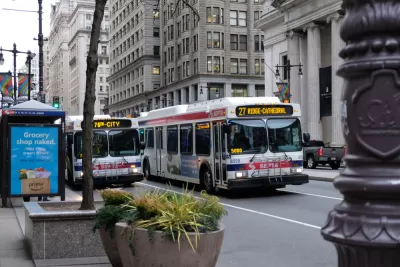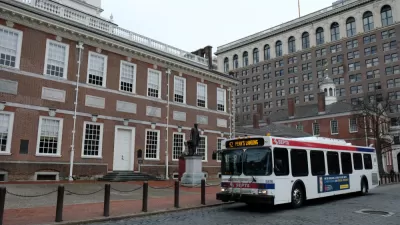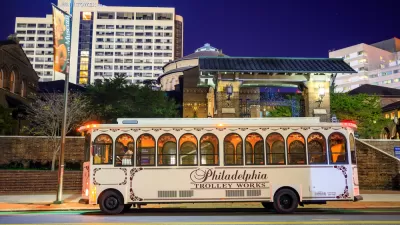The agency is taking multiple steps to recruit and retain more transit operators, but it likely won’t be enough to prevent the agency from having to cut service on some of its bus lines.

Like more than 90 percent of U.S. transit agencies, the Southeastern Pennsylvania Transportation Authority (SEPTA) is facing a lingering operator shortage. Writing for WHYY, Jordan Levy describes five potential solutions for the agency’s staffing shortage that SEPTA is exploring.
Levy suggests that the agency and/or city could subsidize more operator onboarding costs to reduce the fees bus drivers and other agency staff have to pay to gain the appropriate training and certification, a tactic already in place in cities like Boston and Chicago. This can be achieved through community partnerships like one already created by SEPTA with the West Philadelphia Skills Initiative.
Levy also addresses making work schedules more flexible, addressing operator safety and harassment of operators, and boosting pay and hiring bonuses. SEPTA is implementing changes in each of these areas.
As a less desirable solution, Levy also posits that the agency could, like others, cut service to reduce the need for more operators, a less-than-ideal solution for riders. Levy notes that the latest version of the bus system redesign, which reduces service on some lines, is open for public comment until May.
FULL STORY: 5 potential pathways to solving SEPTA’s chronic operator shortage

Alabama: Trump Terminates Settlements for Black Communities Harmed By Raw Sewage
Trump deemed the landmark civil rights agreement “illegal DEI and environmental justice policy.”

Study: Maui’s Plan to Convert Vacation Rentals to Long-Term Housing Could Cause Nearly $1 Billion Economic Loss
The plan would reduce visitor accommodation by 25% resulting in 1,900 jobs lost.

Planetizen Federal Action Tracker
A weekly monitor of how Trump’s orders and actions are impacting planners and planning in America.

Wind Energy on the Rise Despite Federal Policy Reversal
The Trump administration is revoking federal support for renewable energy, but demand for new projects continues unabated.

Passengers Flock to Caltrain After Electrification
The new electric trains are running faster and more reliably, leading to strong ridership growth on the Bay Area rail system.

Texas Churches Rally Behind ‘Yes in God’s Back Yard’ Legislation
Religious leaders want the state to reduce zoning regulations to streamline leasing church-owned land to housing developers.
Urban Design for Planners 1: Software Tools
This six-course series explores essential urban design concepts using open source software and equips planners with the tools they need to participate fully in the urban design process.
Planning for Universal Design
Learn the tools for implementing Universal Design in planning regulations.
Caltrans
Smith Gee Studio
Institute for Housing and Urban Development Studies (IHS)
City of Grandview
Harvard GSD Executive Education
Toledo-Lucas County Plan Commissions
Salt Lake City
NYU Wagner Graduate School of Public Service





























